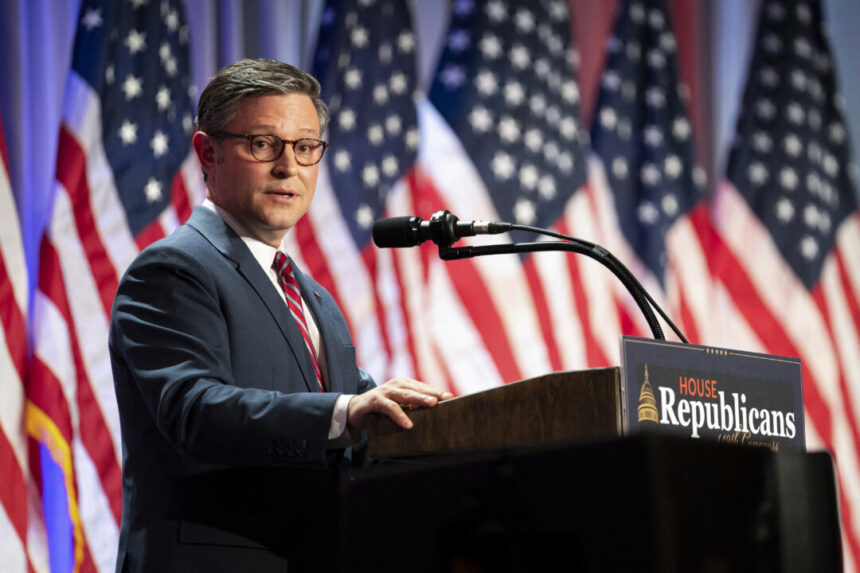Johnson needs to secure the majority of the full House in the upcoming Congress to continue holding the position of House Speaker.
WASHINGTON—Rep. Mike Johnson (R-La.) was nominated by the House GOP conference on Nov. 13 to continue serving as the speaker of the House.
The Republicans are close to maintaining control of the House, with just one seat away from a majority, as reported by The Associated Press.
If they secure the majority, the GOP will have control over the White House and both chambers of Congress, which will support President-elect Donald Trump in implementing his agenda.
Johnson, who ran unopposed and received endorsement from Trump at the House GOP meeting on Nov. 13, must now win the majority in the full House to retain his position.
The vote is scheduled for early January once the new Congress is sworn in.
Majority Leader Steve Scalise (R-La.) was reelected to his number two position in the conference for the next Congress, while Majority Whip Tom Emmer (R-Minn.) retained his number three position.
Johnson assumed the role of speaker on Oct. 25, 2023, following the removal of former Rep. Kevin McCarthy (R-Calif.) after nine months.
He has been serving in Congress since 2017, representing Louisiana’s Eighth Congressional District after previously serving in the Louisiana House of Representatives.
Prior to becoming speaker, Johnson was the chairman of the Republican Study Committee and the vice chair of the House GOP Conference, the largest conservative caucus in Congress.
The speaker has pledged to advance an “America First agenda” within the House GOP.
During a press conference on Nov. 12, he stated, “It will grow our economy, reduce inflation, secure our borders, restore America’s energy dominance, implement educational freedom, and drain the swamp, among other initiatives.”
Among the various items on the agenda, Johnson has mentioned plans to repeal Obamacare, address the China threat, and build on the 2017 tax cuts, without providing specific details.
It is uncertain how large the majority will be, as Johnson may face a narrower majority due to Reps. Elise Stefanik (R-N.Y.) and Michael Waltz (R-Fla.) potentially leaving their positions to serve as U.S. ambassador to the United Nations and national security adviser, respectively.
While Stefanik will require Senate confirmation, Waltz can assume his role immediately without approval from the Senate.
Johnson stated on Nov. 12 that he does not anticipate any further vacancies, but the House GOP is prepared to address any upcoming empty seats.
Arjun Singh contributed to this report.








